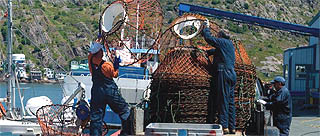“At a time when there’s a spotlight on America’s richest 1%, a look at the country’s 310 Indian reservations–where many of America’s poorest 1% live–can be more enlightening.” Indian reservations are home to some of the nation’s poorest people. According to John Koppisch, a senior editor at Forbes Magazine, explanations often point to “alcoholism, corruptionContinue reading “A Look At The Bottom One Percent”
Author Archives: admin
A study: Building roads to cure congestion is an exercise in futility
Traffic congestion is a huge problem, but building more roads only compounds the problem. University of Toronto Professor Matt Turner says studies show that mass transit also is not panacea. Perhaps it is time to try the market with congestion pricing.
Children on farms: A conceit over fatalities
The U.S. Department of Labor proposes sweeping new regulations to limit child labor. Not all agricultural work is inherently dangerous, and sweeping generalizations will do more harm than good.
Christmas Trees: Real or Fake?
It is the time of year for the seasonal debate over the family Christmas tree: live or artificial? A live tree means removing a tree from the forest, or tree plantation, as it may be. A fake tree is usually an import from a foreign factory. About 30 million live Christmas trees are sold in the USContinue reading “Christmas Trees: Real or Fake?”
Going Off the Rails Against the REINS Act
Today the House of Representatives is expected to vote on the REINS Act, a bill to enhance political accountability over regulatory decisions. The bill has two essential features. First, it bars new “major” regulations (those anticipated to cost more than $100 million annually) from taking effect unless approved by both houses of Congress. Second, it createsContinue reading “Going Off the Rails Against the REINS Act”
Q&A with Steven Medema on the Coase Theorem and Environmental Economics
There has been plenty of confusion surrounding the work of Ronald Coase since his article “The Problem of Social Cost” appeared in 1960 – so much, in fact, that two scholars wrote in 1992 that the so-called Coase theorem has “generated a negative externality for economists.” To clear up some of the confusion, we talkedContinue reading “Q&A with Steven Medema on the Coase Theorem and Environmental Economics”
Utopian Environmentalism
Don’t miss Steven Greehut’s article in City Journal on environmentalists waging war on rural property owners. Greenhut explains how he fell in love with California the moment he crossed the Colorado River into the Mojave and how he understands the desire to protect these landscapes. “Everybody needs beauty as well as bread, places to play in and pray in, whereContinue reading “Utopian Environmentalism”
Thank You
As you enjoy your Thanksgiving feast, take a moment to look around at all there is to be thankful for; great food, and more of it growing on less land; great variety, goods are delivered to us daily from around the world; a clean environment, that contrary to much belief, is improving over time; resource abundance, even if finite in supply.Continue reading “Thank You”
Ladies for Liberty
Looking for the perfect holiday gift? Check out Ladies for Liberty. I recently heard author John Blundell discuss this interesting book. Blundell is a distinguished senior fellow with the Institute for Economic Affairs in London and the author of Margaret Thatcher: A Portrait of the Iron Lady. He was inspired to write Ladies for Liberty because heContinue reading “Ladies for Liberty”
Government As Definer of Fishing Rights
Ocean overfishing provides a classic illustration of the tragedy of commons. Because no one owns the fish in the sea, there are no incentives for fishermen to constrain their catch. Leaving fish for the future means they are available to others to catch. Government managers have tried to regulate the problem away, but the result has been a wasteful race for fish. A better approach emergedContinue reading “Government As Definer of Fishing Rights”






